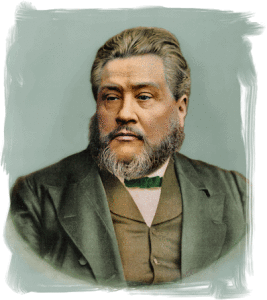 C. H. Spurgeon from “Lectures to My Students” (Zondervan) p. 29-31:
C. H. Spurgeon from “Lectures to My Students” (Zondervan) p. 29-31:
The first sign of the heavenly call is an intense, all-absorbing desire for the work. In order to a true call to the ministry there must be an irresistible, overwhelming craving and raging thirst for telling to others what God has done to our own souls; what if I call it a kind of otopyn, such as birds have for rearing their young when the season is come; when the mother-bird would sooner die than leave her nest?
It was said of Alleine by one who knew him intimately, that “he was infinitely and insatiably greedy of the conversion of souls.” When he might have had a fellowship at his university, he preferred a chaplaincy, because he was “inspired with an impatience to be occupied in direct ministerial work.” “Do not enter the ministry if you can help it,” was the deeply sage advice of a divine to one who sought his judgment.
If any student in this room could be content to be a newspaper editor, or a grocer, or a farmer, or a doctor, or a lawyer, or a senator, or a king, in the name of heaven and earth let him go his way; he is not the man in whom dwells the Spirit of God in its fulness, for a man so filled with God would utterly weary of any pursuit but that for which his inmost soul pants. If on the other hand, you can say that for all the wealth of both the Indies you could not and dare not espouse any other calling so as to be put aside from preaching the gospel of Jesus Christ, then, depend upon it, if other things be equally satisfactory, you have the signs of this apostleship. We must feel that woe is unto us if we preach not the gospel; the word of God must be unto us as fire in our bones, otherwise, if we undertake the ministry, we shall be unhappy in it, shall be unable to bear the self-denials incident to it, and shall be of little service to those among whom we minister.
I speak of self-denials, and well I may; for the true pastor’s work is full of them, and without a love to his calling he will soon succumb, and either leave the drudgery, or move on in discontent, burdened with a monotony as tiresome as that of a blind horse in a mill.
“There is a comfort in the strength of love;
’Twill make a thing endurable which else
Would break the heart.”
Girt with that love, you will be undaunted; divested of that more than magic-belt of irresistible vocation, you will pine away in wretchedness.
This desire must be a thoughtful one. It should not be a sudden impulse unattended by anxious consideration. It should be the outgrowth of our heart in its best moments, the object of our reverent aspirations, the subject of our most fervent prayers. It must continue with us when tempting offers of wealth and comfort come into conflict with it, and remain as a calm, clear-headed resolve after everything has been estimated at its right figure, and the cost thoroughly counted.
When living as a child at my grandfather’s in the country, I saw a company of huntsmen in their red coats riding through his fields after a fox. I was delighted! My little heart was excited; I was ready to follow the hounds over hedge and ditch. I have always felt a natural taste for that sort of business, and, as a child, when asked what I would be, I usually said I was going to be a huntsman. A fine profession, truly!
Many young men have the same idea of being parsons as I had of being a huntsman—a mere childish notion that they would like the coat and the horn-blowing; the honour, the respect, the ease; and they are probably even fools enough to think, the riches of the ministry. (Ignorant beings they must be if they look for wealth in connection with the Baptist ministry.) The fascination of the preacher’s office is very great to weak minds, and hence I earnestly caution all young men not to mistake whim for inspiration, and a childish preference for a call of the Holy Spirit.
Mark well, that the desire I have spoken of must be thoroughly disinterested. If a man can detect, after the most earnest self-examination, any other motive than the glory of God and the good of souls in his seeking the bishopric, he had better turn aside from it at once; for the Lord will abhor the bringing of buyers and sellers into his temple: the introduction of anything mercenary, even in the smallest degree, will be like the fly in the pot of ointment, and will spoil it all.
This desire should be one which continues with us, a passion which bears the test of trial, a longing from which it is quite impossible for us to escape, though we may have tried to do so; a desire, in fact, which grows more intense by the lapse of years, until it becomes a yearning, a pining, a famishing to proclaim the Word.
This intense desire is so noble and beautiful a thing, that whenever I perceive it glowing in any young man’s bosom, I am always slow to discourage him, even though I may have my doubts as to his abilities. It may be needful, for reasons to be given you further on, to repress the flame, but it should always be reluctantly and wisely done. I have such a profound respect for this “fire in the bones,” that if I did not feel it myself, I must leave the ministry at once. If you do not feel the consecrated glow, I beseech you return to your homes and serve God in your proper spheres; but if assuredly the coals of juniper blaze within, do not stifle them, unless, indeed, other considerations of great moment should prove to you that the desire is not a fire of heavenly origin.


